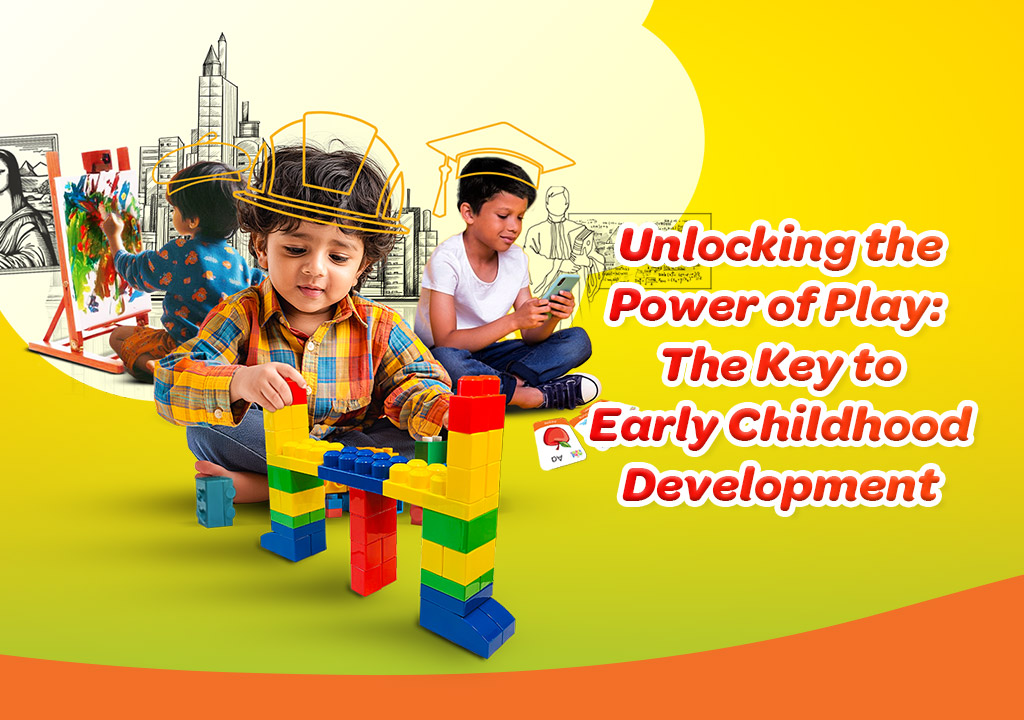Play is a fundamental aspect of Early Childhood Development (ECD), serving as a powerful tool for children to explore and understand the world around them. It allows children to channel their energy, imagination, and creativity, and provides opportunities for social interaction and engagement. Through play, children experience immense joy and stimulate their brains, fostering the creation of new neural connections.
Play is inherently self-directed and does not require a specific outcome, allowing children to learn through the process itself. As a result, play is far from being “just play” or a “waste of time and money.” Instead, it is a crucial component of ECD, serving as a primary learning platform for young children.
Children begin to engage in play from the moment they are born. It is essential to provide them with the time and space to play freely and according to their own interests. This freedom allows them to explore, experiment, and learn at their own pace, which is crucial for their development and well-being.
There are six stages of play during early childhood, each helping children develop different skill sets. These stages involve exploration, motor skills, creativity, imagination, attention, and, importantly, fun and joy. As children advance through each stage, their play skills progress along with their development of language and social relationships.






Children engage in a variety of play types that support their development in different ways. Each type of play offers unique benefits and helps in different areas of a child’s development.
Indoor Play-Activities that children do inside the home or indoors, such as playing with building blocks, puzzles, or board games. It can be beneficial for fine motor skills and creativity.
Outdoor Play- Activities that occur outside, like running, climbing, or playing sports. Outdoor play helps develop gross motor skills, coordination, and provides opportunities for social interaction and exploration.
Child-Directed Play-Also known as free play, this is when children choose and lead their own activities without structured guidance. It promotes independence, creativity, and problem-solving skills.
Guided Play- Involves some level of adult involvement where the adult provides a framework or introduces materials but allows the child to explore and direct the play. It balances structure and freedom, fostering both creativity and learning.
Pretend Play-Also known as imaginative or dramatic play, this is when children create scenarios and act out roles, such as playing house or pretending to be superheroes. This type of play enhances social skills, language development, and cognitive flexibility.
Constructive Play- This involves building or creating something with materials like blocks, LEGO, or clay. It supports spatial reasoning, problem-solving, and fine motor skills as children design and construct their creations.
Benefits of Play

Actively participating in play with your child can significantly enhance the benefits of play. It also strengthens the relationship, making the experience enjoyable and enriching for both parent and child.
Playing with your child will benefit them in the following ways:
• Boosts Self-Confidence-Active participation from parents helps children feel valued and capable, enhancing their confidence in their abilities.
•Enhances Self-Esteem- Engaging in play together allows parents to acknowledge their child’s strengths and efforts, reinforcing a positive self-image.
•Strengthens the Parent-Child Bond- Shared play experiences create memorable moments and deepen the emotional connection between parent and child.
•Models and Teaches Skills- Through play, parents can demonstrate social skills, turn-taking, and problem-solving strategies, providing practical examples for children to follow.
•Promotes Emotional Well-being- Playtime with parents provides joy and relaxation, helping children feel secure and loved, which is crucial for their emotional development.
•Fosters Communication- Interactive play offers natural opportunities for conversation, helping expand the child’s vocabulary and improve communication skills.
Not only the child but playing with your child benefits you as well. Research shows that engaging in play stimulates the brain and releases the hormone- oxytocin, often called the “love hormone,” which strengthens the bond and trust between parent and child. Additionally, play has calming effects that can reduce stress and anxiety in parents. Therefore, play serves as a valuable source of joy, bonding, and relaxation for parents while supporting the development of their child.

